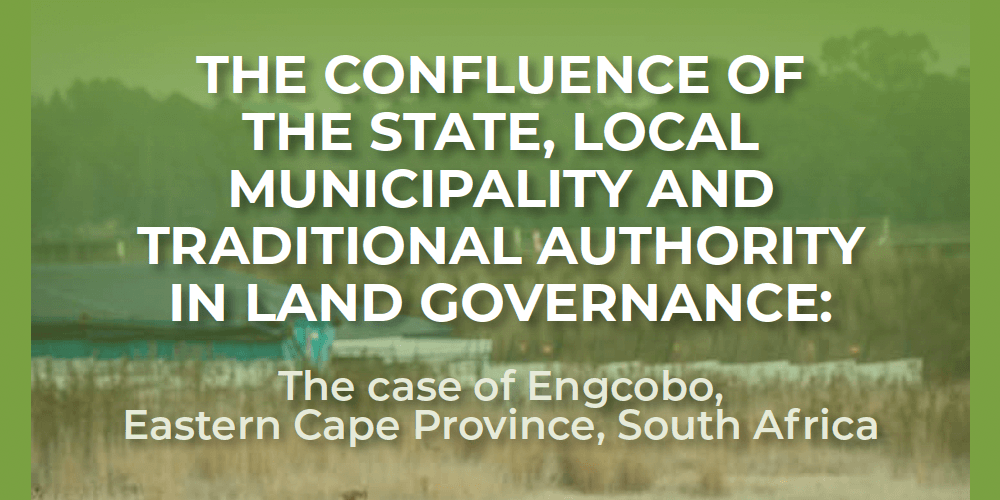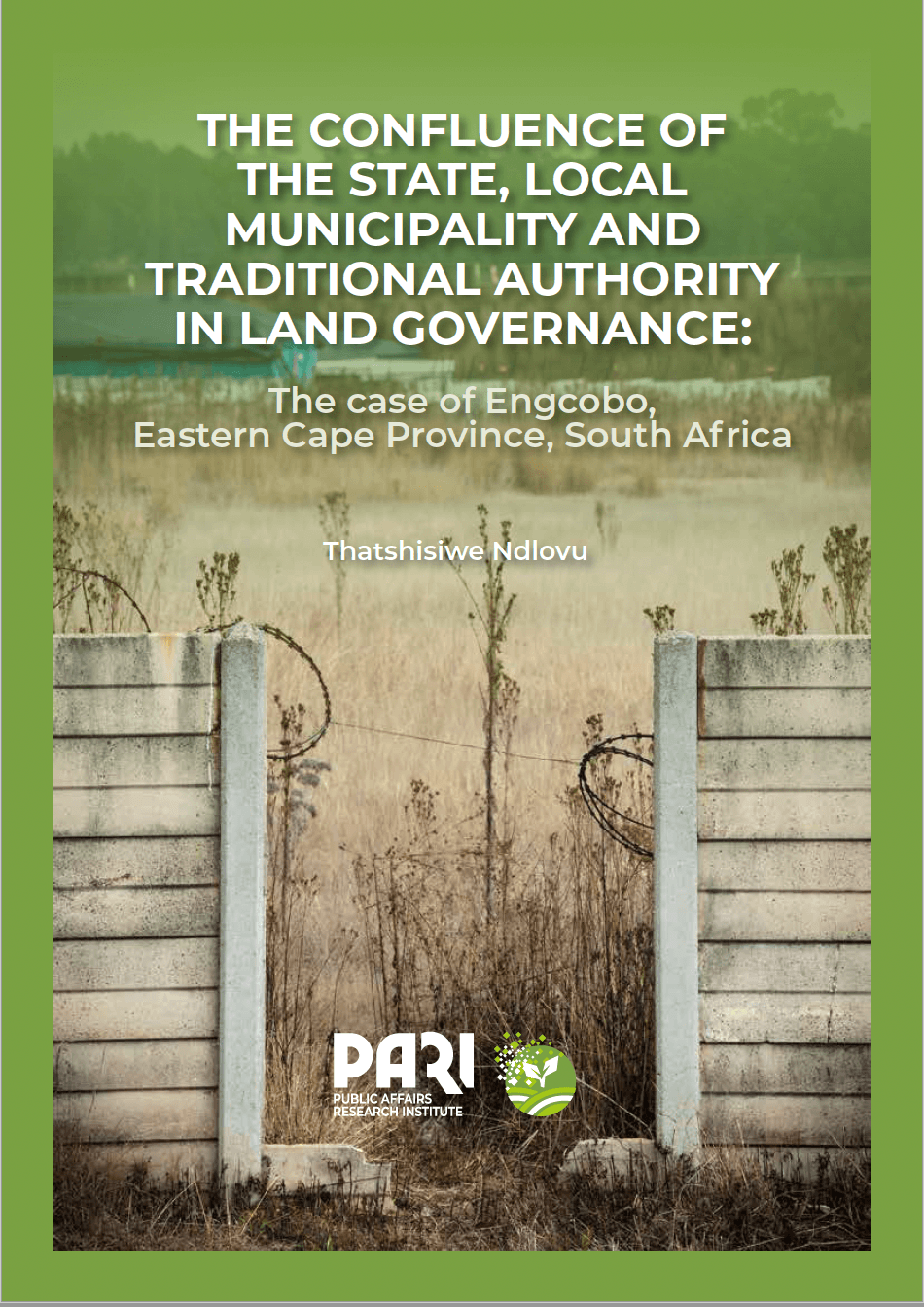This report examines land governance in Engcobo and shows how negotiation and compromise characterise the relationship between the municipality and traditional authorities. It reveals how local governance is shaped and reshaped by the complex entanglements of some organs of the state, party politics, private property owners, developers and influential private individuals.
The report demonstrates how diverse institutions – the municipality and the traditional leadership – intersect in land-use management and how their relationship is informed by national legislation like the Spatial Planning and Land Use Management Act (Spluma) which extends land-use zoning to areas under traditional management where in the past no formal zoning was imposed. It details the challenges of these dual land-use management systems and the measures taken to deal with them. Furthermore, it reveals the perceptions of both the municipal officials and the traditional leadership on land-use management and the implications these have on development projects and the lived experiences of ordinary people in Engcobo.
This report forms part of the Public Affairs Research Institute’s (PARI) Land Governance programme which focuses on land governance issues in South Africa and beyond.



